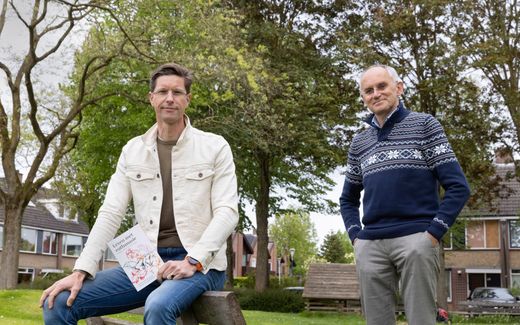Column from Germany: It might become legal to choose time of your own death
16-06-2023
Christian Life
Wolfgang Stock, CNE.news

Judges of the Constitutional Court in Germany declared the ban on assisted suicide illegal. Therefore, the lawmakers have to find a way to deal with that. Photo EPA, Thorsten Wagner
Christian Life
A few days ago, our neighbour stood crying at our front door and handed me a bag of cat litter with the words: We had to put our cat to sleep – do you want the bag?
She still finds it difficult to get over the fact that she had to take this step – even though her beloved cat was already 18 years old and had thus reached a ripe old age.
I had to think of this heartbreaking experience when the topic of euthanasia came up again on the political agenda in Germany in recent days.
Three years ago, the German Federal Constitutional Court declared the strict ban on assisted suicide unconstitutional, repealed a corresponding criminal law and called on parliament to re-legislate assisted suicide.
On such ethical issues, it is customary that there is no government bill but that groups of deputies come together and vote on different models across party lines.
Autonomous
There is, unsurprisingly, a bill promoting the right to self-determined dying: “Everyone who wants to end his life has the right to seek help to do so!”
In this bill, every person’s free and autonomous will is central. In addition, a network of independent counselling centres will be established to provide individualised support services. This is also to ensure that the wish to die is permanent.
Another group has formed around the Social Democratic MP Lars Castellucci and the Christian Democrat MP Ansgar Heveling. Their restrictive draft provides for assisted suicide to remain punishable in principle but to be permitted under certain conditions. (Abortion is regulated similarly in Germany.)
Two psychiatric reports plus proof of medical counselling would have to be submitted to prevent self-determination from coming under pressure. In addition, advertising is to be banned. No one should be obliged to assist in a suicide, not even doctors. At the same time, however, the parliamentary group assumes that a “growing part of the medical profession” has come to terms with assisted suicide.
These two draft laws on euthanasia will be discussed and passed in the German parliament, the Bundestag, on the last day of the session before the summer break – in free votes without the otherwise de facto factional coercion. After the summer, the Länder chamber, the German Bundesrat, would have to vote on the law.
Hospice
Many Christians in Germany have warned against a “liberalisation” of euthanasia. Pastor Ulrich Pohl, for example, says it very clearly. He is the head of the Bodelschwinghsche Stiftungen Bethel. With more than 20,000 employees, this is the largest social enterprise in Europe and whose main task for 155 years has been to care for old and disabled people.
Pohl says very clearly: assisted suicide must not become a normal way of dying. This is incompatible with the Christian faith: Thou shalt not kill, says the sixth commandment. It could not be clearer.
Death should not be scheduled against the background of holiday planning or professional obligations. Elderly people could perceive themselves as a burden to their relatives and feel compelled to accept assisted suicide.
Pohl warns: a suicide is not a termination of life, but an abortion; much remains unsaid. Therefore, Bethel supports terminally ill people with hospices and outpatient palliative services.
Opposition
Professor Christian Hillgruber, a professor of constitutional law from Bonn, already called on Christians a year ago to intervene in this political debate without being asked and to articulate opposition – but these two are practically the only ones to take a clear position against the plans to facilitate euthanasia.
But the large churches and free churches have so far expressed their opposition, however, very cautiously. At the large Protestant “Kirchentag” (a gathering of church members recently held in Nuremberg with 70,000 participants), euthanasia was not an issue. The political parties are also highly reticent and refer to the conscience of the MPs.
The majority of the population, and also of Christians, are unexcited. According to a recent opinion poll, only 37 per cent of the people expect that a new law will increase the pressure on the old and sick to use euthanasia. Forty-nine per cent do not share this fear, and 22 per cent do not know where they stand on the issue.
I find this strange: it is about an ethically crucial question, and hardly anyone wants to comment. It shows that Christian institutions in Germany no longer really get involved in the debate, even on what are actually their very own issues.
About the author

Wolfgang Stock was born in 1959 in Hanover, West Germany, as the child of refugees from the Eastern GDR. He studied history and international politics in Würzburg and Oxford, where he also received his doctorate. He is a board member of the German Evangelical Alliance. He worked as a journalist for many years, wrote several political books, including the first biography of Angela Merkel in 2000. He lives in Karlsruhe with his wife. They have five grown-up children and four grandchildren.
Related Articles









